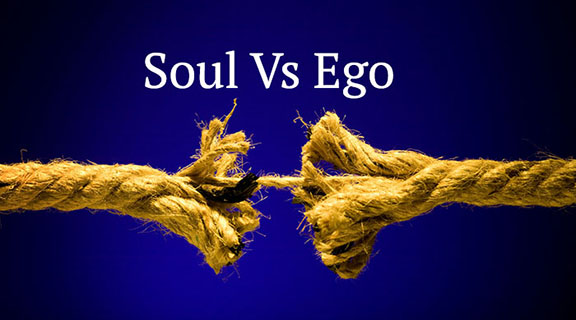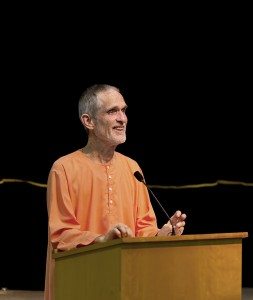 Our spiritual dilemmas often revolve around deciding how to act in a difficult situation, when none of the choices feel quite right. A variation of this occurs when we struggle to distinguish between a higher, or divine, will and the will of our ego-mind. This can be especially difficult when the voice of the ego-mind, well aware of the teachings we embrace, disguises itself in convincing spiritual reasoning. This paradoxical concept implies that the ego-mind, the voice in us that we normally identify with, becomes silent and inactive so that our choices are guided solely by a higher source, the spiritual consciousness, or conscience at the heart of our being.
Our spiritual dilemmas often revolve around deciding how to act in a difficult situation, when none of the choices feel quite right. A variation of this occurs when we struggle to distinguish between a higher, or divine, will and the will of our ego-mind. This can be especially difficult when the voice of the ego-mind, well aware of the teachings we embrace, disguises itself in convincing spiritual reasoning. This paradoxical concept implies that the ego-mind, the voice in us that we normally identify with, becomes silent and inactive so that our choices are guided solely by a higher source, the spiritual consciousness, or conscience at the heart of our being.
Then one could say that the little ego, “me,” is not acting even while the body-mind is performing actions. To fully experience this requires a very evolved state of being—a complete freedom from personal desires. However, we can all take some steps right now to grow in our ability to act (or not act) this way.
Each time we have a situation in which our personal preferences may interfere with the ability to objectively discern the guidance of a higher will, we must ask ourselves if we are sincerely willing to embrace that higher guidance. To do that, we must be willing to completely let go of whatever might be favorable to us no matter what the result.
Sri Swami Satchidananda clearly articulated a method for analyzing such decisions by describing what he called a “right action:” one that benefits at least someone while harming no one. Using this principle, we must examine our motives carefully. Even if an action appears to be harmless to others, it may be harmful to us if it compromises our integrity. For example, if I lie in some small way in order to look good in the eyes of others, I am violating the universal ethical principle of truthfulness. It also sustains in me the illusion that happiness can be acquired by gaining the approval or admiration of others. Such deception is also unfair to others, since it creates false impressions.
If we are truly willing to set aside our preferences and desires, and open our hearts to receive guidance, the messages of the spiritual consciousness within us will always be available. Even when we are sincere, we may still struggle if an issue is emotionally charged for us. In such cases, we can consult with someone we trust to help us see clearly.
That inner voice of truth is the same in all of us and will always consider the well-being of everyone. Quieting our ego-minds sufficiently to listen to it may not make us look good, but will bring peace to our hearts, and create relationships built on honesty and trust.
About the Author:
 Swami Ramananda is the president of the Integral Yoga Institute of San Francisco and a greatly respected master teacher in the Integral Yoga tradition, who has been practicing Yoga for more than 35 years. He offers practical methods for integrating the timeless teachings and practices of Yoga into daily life. He leads beginner, intermediate, and advanced-level Yoga Teacher Training programs in San Francisco and a variety of programs in many locations in the United States, Europe, and South America. Swami Ramananda trains Yoga teachers to carry Yoga into corporate, hospital, and medical settings and has taught mind/body wellness programs in many places. He is a founding board member of the Yoga Alliance, a national registry that supports and promotes Yoga teachers as professionals.
Swami Ramananda is the president of the Integral Yoga Institute of San Francisco and a greatly respected master teacher in the Integral Yoga tradition, who has been practicing Yoga for more than 35 years. He offers practical methods for integrating the timeless teachings and practices of Yoga into daily life. He leads beginner, intermediate, and advanced-level Yoga Teacher Training programs in San Francisco and a variety of programs in many locations in the United States, Europe, and South America. Swami Ramananda trains Yoga teachers to carry Yoga into corporate, hospital, and medical settings and has taught mind/body wellness programs in many places. He is a founding board member of the Yoga Alliance, a national registry that supports and promotes Yoga teachers as professionals.

